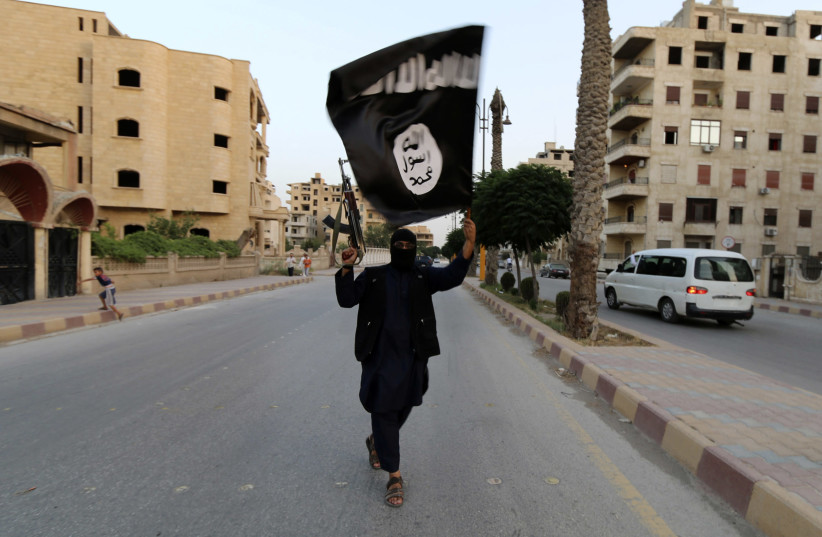It’s been a difficult week for Israel, with a wave of terror attacks gripping the nation, leaving 11 innocent people dead. And it’s become painfully obvious that these attacks target not just Jews, but all Israelis.
In addition to the murder of seven Israeli Jews, the victims included two Ukrainians; Israeli Arab policeman Amir Khoury, a Christian; and Israeli Druze border policeman Yazan Falah. From these tragic events, an important conclusion can be drawn: the enemies of peace are increasingly threatened as the people of Israel and the Middle East draw closer to unity and peace.
Although many factors likely contributed to the recent acts of terrorism, it’s no coincidence that an attack from ISIS-aligned terrorists occurred at the same time as the historic Negev Summit, where four foreign ministers from Arab states gathered in Israel for the first time.
Israel’s relations with the Arab world are growing infinitely stronger by the day, with new memorandums of understanding, and even defense agreements, being signed nearly every week. Part of this is genuinely shared values and mutually beneficial peace agreements, and part of this is a result of the alliance against Iran and its destabilizing and violent attacks throughout the region.
As Israel and Arab states build a thriving relationship, those who are against normalization – be it Iran or ISIS – are being phased out of the conversation. The way of the future in the Middle East, for once, is not extremism, but cooperation.

Since 1948, Israel has struggled to achieve acceptance in the Arab world largely as a result of a pan-Arab ideology that used the Palestinians as political pawns. The logic was that if the Arab world refused to have relations or recognition of Israel (including refusal to assist Palestinian refugees), this would pressure Israel until the Arab world could wipe it off the map.
This rejectionist thinking has proven to be damaging and unproductive, more to the Arab world and the Palestinians than to anyone else. Israel succeeded despite all odds, and after more than 70 years of a delusional, self-damaging approach, the Arab world had enough.
The Abraham Accords were not merely a peace agreement with the United Arab Emirates, Bahrain, Sudan and Morocco, but a symbol of acceptance instead of rejection, of progress instead of stagnation. The byproduct, however, is that extremists are growing more desperate.
Iran and its proxies like the Houthis in Yemen and Hezbollah in Lebanon are becoming increasingly aggressive and violent, even against Arab states like Saudi Arabia and the UAE. At the same time, as the region shifts, terrorist organizations like Hamas and ISIS are being rejected more than ever.
AS THE Negev Summit went on, extremists tried to derail the atmosphere of peace. While the attacks are heartbreaking and must be stopped, they actually proved that Israel’s alliance with the Arab world is authentic. For the first time we saw foreign ministers of Arab states condemning terrorism against Israelis, openly speaking out about the importance of people-to-people peace in preventing and stopping extremism.
In the days following the Negev Summit, we also saw Turkey strongly condemn terrorism against Israel, despite years of tension and support for Hamas terrorists, and a historic visit of Defense Minister Benny Gantz and President Isaac Herzog to Jordan to meet King Abdullah.
Simultaneously, a similar phenomenon is occurring within Israel: Israeli society and the younger generation of Israeli Arabs are pushing further toward unity, as understanding grows that Israelis really are one people, and those who attack us, attack all of us.
Despite that, extremists from the Israeli Arab society have tried to hijack the narrative to distract and fight this reality. This occurred last May with the riots, and it occurred this past week with several of the terrorists murdering their fellow citizens.
Israel must do everything it can to stop this wave of terrorism, but we have more reason than ever to be hopeful as the momentum is continuing to head in the right direction, both regionally and within Israel. The path to normalization isn’t easy, but at this point it is inevitable.
Israeli society is diverse and unique, composed of Jews, Arabs, and Druze, the vast majority of whom want to be Israeli, and want to live together in peace. As time goes on, the silent majority who support normalization will prevail.
The writer is the CEO of Social Lite Creative, a digital marketing firm that specializes in geopolitics.
